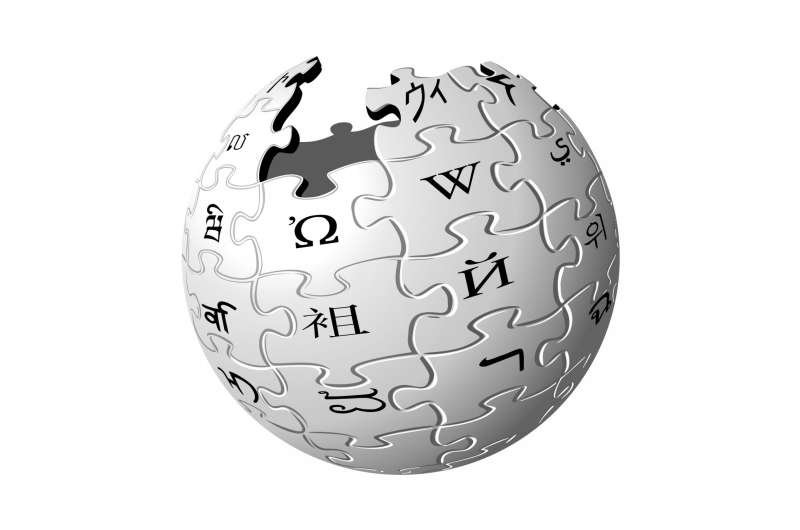Wikipedia logo.
The rules surrounding information have changed with the ongoing development of the digital world. Information has become accessible to almost everyone around the world, any time of the day or night, at the touch of a mobile phone screen or the click of a mouse.
Writing in the International Journal of Big Data Intelligence, a team from Italy, reiterates this point and points out that at this stage in the evolution of those rules there are now a handful of central hubs providing almost all of the information that the vast majority of the population accesses: the major search engines, such as Google and Baidu, the big social media networks, Facebook and Twitters, and a few other repositories, such as Wikipedia and their more local equivalents in Russia, China, and other parts of the world that have certain barriers to globalization.
Massimo Marchior and Enrico Bonetti Vieno of the University of Padua, explain how a system like Wikipedia has many pros but also various cons. It has been enormously successful as a dynamic, online alternative to conventional encyclopedia. However, the distributed nature of its content, sources, and editors, also gives rise to some problems. Fundamentally, the team writes "everybody can contribute and so also manipulate information in a way that is practically invisible to the general public."
They describe the "Negapedia" system, which is an online public service that offers a more complete picture of the underlying layers of Wikipedia. It involves big data analysis and the need to overcome information overload, but it also offers novel insights into the important issue of Wikipedia categorisation, analysing the problem of presenting general users with easy and meaningful category information. Negapedia can, the team reports, reveal the social turbulence that underlies much of the content and the editorial battles that take place, particularly surrounding controversial subjects, such as politics, religion, conspiracy theories, and activism and advocacy.
An additional point of interest that emerges from this study is the connection between controversial information and the level of interest in that subject matter. "We found out that there is, in fact, correlation between topics of high interest to users and conflict, thus showing that controversy seems to be tightly linked with popularity." They add that perhaps one aspects drives the other. "To some extent, controversy (negativity) can be seen as a natural phenomenon arising from people interest," they add.
More information: Massimo Marchiori et al. To beat or not to beat: uncovering the world social battles with Wikipedia, International Journal of Big Data Intelligence (2020). DOI: 10.1504/IJBDI.2020.107377
Provided by Inderscience























